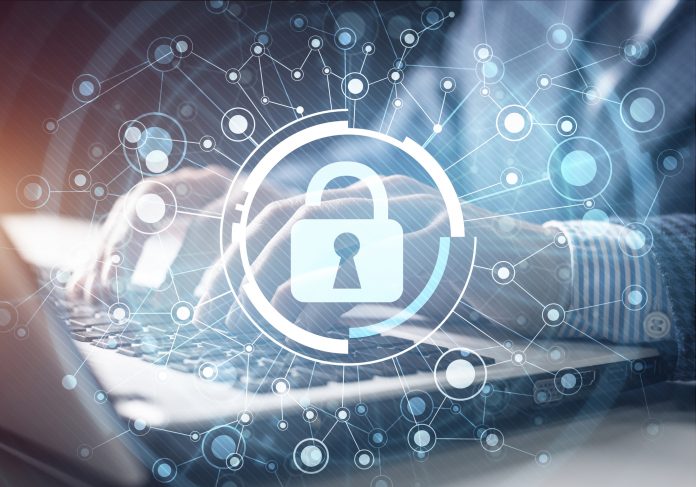Andrus Ansip, Vice-President of the European Commission in charge of Digital Single Market aims to lead the “Digital Single Market”, as this article explores, plus his priorities for fighting cybersecurity
Andrus Ansip, Vice-President of the European Commission in charge of Digital Single Market has a number of responsibilities, including leading the project team “Digital Single Market” and fighting against cybercrime. So let’s look at these key areas now.
Targeted investment and robust digital policies
In June 2019, the European Commission published the results of the 2019 Digital Economy and Society Index (DESI). This essentially tracks Europe’s overall digital performance and the progress of the European Union (EU) countries concerning their digital competitiveness. Certainly, countries with ambitious targets in line with the EU Digital Single Market Strategy who combined them with adapted investment performed better in a relatively short period of time. Having said that, the results showed that the largest EU economies are not front-runners when it comes to digital which suggests that the speed of digital transformation must accelerate for the EU to stay competitive at a global level.
Vice-President Ansip, comments: “In late 2014, when we began drawing up a plan for the Digital Single Market we wanted to build a long-term strategy to stimulate Europe’s digital environment, minimise legal uncertainty and create fair conditions for everyone. Now that the EU has agreed on 28 out of 30 legislative proposals, creating 35 new digital rights and freedoms, the successful implementation of the Digital Single Market can significantly contribute to further improving country results. It is urgent to implement new rules to boost connectivity, data economy and digital public services as well as help Member States to equip citizens with digital skills that are adapted to the modern labour market.” 1
Digital Single Market: World-class supercomputers
Supercomputers are a very important component in the development of artificial intelligence (AI) and they also boost Europe’s strengths in cybersecurity and blockchain, according to the European Commission. We know that AI can benefit many sectors, including healthcare, energy consumption, climate change and financial risk management. AI also helps to detect fraud and cybersecurity threats and enables law enforcement authorities to fight crime more efficiently.2 In June this year, we learn that eight sites for supercomputing centres have been selected across the EU to host the first European supercomputers.
Commenting on this important development, Vice-President Ansip says: “These sites will give our researchers access to world-class supercomputers, a strategic resource for the future of European industry. They will be able to process their data inside the EU, not outside it. It is a major step forward for Europe to reach the next level of computing capacity; it will help us to advance in future-oriented technologies like the internet of things (IoT), artificial intelligence, robotics and data analytics.”3
A call for stronger cybersecurity
Picking up on the aforementioned theme of cybersecurity, we know that in December 2018, the EU’s was agreed on and created a framework for certifying ICT products, services and processes that will be valid across the EU. In a speech by Vice-President Andrus Ansip at the Digital Day 2019 in early April 2019, he calls for: “Stronger cybersecurity” and “better protection against online threats.” In this vein, he adds that: “This is the EU’s first internal market law that takes up the challenge of boosting security of connected products, IoT devices as well as critical infrastructure.”4
Digital security, amongst other areas, was placed under the spotlight during the occasion of the G20 Ministerial for Trade and the Digital Economy on 8th June 2019. Here, the EU and its Member States thanked Japan for its leadership in bringing forward discussions the most vital topics of the digital economy, including digital security, artificial intelligence (AI), as well as strategies to bridge emerging digital divides.
One thing the press release on this discusses is that the EU and its Member States are supporting Japan‘s Data Free Flow with Trust initiative, which sets out to facilitate the cross-border flow of data: “among countries with high levels of privacy protection, data security and intellectual property rights.”
Another is that free, open and secure cyberspace is underpinned by the creation of a human-centred digital society, as detailed in the Paris call for trust and security in cyberspace. “The EU and its Member States will work towards enhancing the level of security of digital processes, products and services. Within the G20 we can work towards the sharing of good practices in capacity building, a risk-based and multi-stakeholder approach.”5
Cybersecurity preparedness
Finally, one noteworthy piece of news to briefly mention is that in early April 2019, the European Parliament, EU Member States, the European Commission and the EU Agency for Cybersecurity (ENISA) organised an exercise to test the EU’s response to and crisis plans for potential cybersecurity incidents affecting the elections in the EU.
Vice-President Ansip provides his thoughts on this which illustrate his key responsibilities around the “Digital Single Market” and fighting cybercrime.
“To secure our democratic processes from manipulation or malicious cyber activities by private interests or third countries, the European Commission proposed in September 2018 a set of actions. Together with the EU Member States and other EU Institutions we are implementing these actions. We also decided to test our cybersecurity vigilance and readiness towards secure, fair and free EU elections 2019 by organising the first in its kind EU exercise on elections. I believe that this is an important step forward for more resilient EU elections in a connected society.”6
References
1 http://europa.eu/rapid/press-release_IP-19-2930_en.htm
2 http://europa.eu/rapid/press-release_IP-19-1893_en.htm
3 http://europa.eu/rapid/press-release_IP-19-2868_en.htm
4 http://europa.eu/rapid/press-release_SPEECH-19-2068_en.htm
5 https://ec.europa.eu/commission/commissioners/2014-2019/ansip/announcements/press-release-eu-member-states-g20-digital-economy-and-trade-ministerial-tsukuba-8-june-2019_en
6 http://europa.eu/rapid/press-release_IP-19-2011_en.htm
Open Access Government











